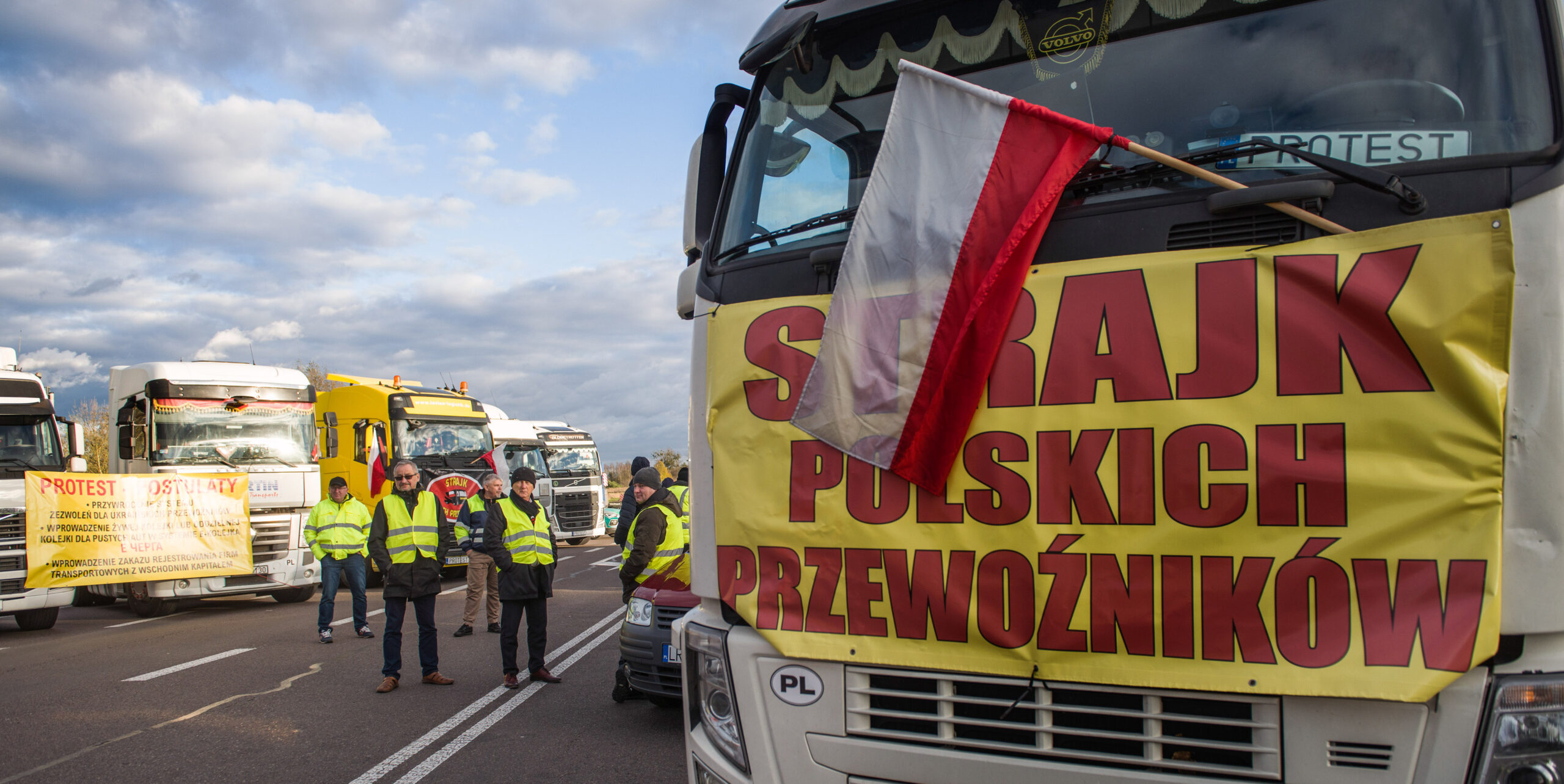Polish truckers are blockading the Ukrainian border in protest against what they describe as Ukrainian grain flooding the EU market and undercutting prices. The Polish Supreme Audit Office reports that the price of corn in Poland has halved over the last year and a half, meaning that farmers now have to pay out of pocket to harvest.
Ukraine is able to charge less because it pays drivers lower salaries, collects lower agricultural taxes, and is not bound by the EU Mobility Package — which mandates that truckers return home to rest for a minimum of 45 hours every four weeks. This should be of interest to other EU countries such as the Netherlands, where the 2021 truckers’ strike demanded a better collective labour agreement — Ukrainian drivers would not be bound by any such agreements, as the EU is presumably well aware.
Following the EU’s decision to abolish Ukrainian licence quotas, Polish and Ukrainian lorries now use the same queues for Schengen entry, and the protesters maintain that outgoing Ukrainian lorries are being prioritised over returning EU lorries by the Ukrainian side, meaning that Polish carriers are losing business as they wait. Polish truckers have responded with a blockade which has left some 1200 Ukrainian lorries queuing for up to 16 days at border checkpoints, with one Ukrainian driver even dying in his vehicle.
Although humanitarian aid and military convoys are allowed to cross as normal, the blockade of commercial vehicles continues to grow. On Monday, protesters closed an additional border crossing at Medyka, with Polish farmers from the “Countryside Betrayed” movement joining the truckers — and Slovakian truckers briefly protested in solidarity with the Poles last week too.
Wiesław Gryn of “Countryside Betrayed” describes his movement a “peasants’ revolt” or “folk veto”, drawing inspiration from farmers’ protest movements in Belgium and the Netherlands. The pressure group was initially successful in negotiating concessions on Ukrainian grain imports from the Polish government in April 2023, but it accuses the previous Agriculture Minister, Robert Telus, of breaking this agreement. The current Minister, Anna Gembicka, met with the protesters on Tuesday, promising that she would address all concerns.
The radical Right-wing party Konfederacja, currently the smallest party in the Polish Parliament with 18 seats, smells an opportunity. Never the strongest supporters of Polish military aid to Ukraine, and with a keen eye on capturing a share of Law and Justice’s core rural electorate, the Party has positioned itself as a peace broker on the side of the protesters.
The Party’s leader Krzysztof Bosak has suggested that Poland has been sluggish in resolving the dispute through diplomatic channels, and that the Government should raise the matter at an upcoming EU summit next month. He has also called for negotiations with Kyiv to focus on re-establishing separate queues for EU lorries.
If the issue is raised at the EU level, support is expected from Slovakia and Hungary — but the crisis is unlikely to be resolved until the post-election dust settles. In the meantime, Viktor Orbán has suggested he would block all EU aid to Ukraine and veto the country’s accession to the EU when the matter is put to a vote by the bloc in mid-December.
This division on Poland’s Right is a blow for the Law and Justice Party, and PM Morawiecki’s new government, which is already unlikely to secure a majority in Parliament in two weeks’ time. And unsurprisingly, Donald Tusk has leapt on the opportunity, accusing the ruling party of politicising Polish support for the Ukrainian war effort, and reversing it when it felt threatened by Konfederacja’s “Poland first” sentiments in the election campaign.
For Poland, this saga is an important lesson in the conflict between party-politics and geopolitics, and the boundary between self-interest and solidarity. For the EU, it’s a reminder that the governments of member states are bound to act in the interests of their own voters. And where they fail to do so, those same voters will remind them of their duty — either at the ballot box or on the streets.










Join the discussion
Join like minded readers that support our journalism by becoming a paid subscriber
To join the discussion in the comments, become a paid subscriber.
Join like minded readers that support our journalism, read unlimited articles and enjoy other subscriber-only benefits.
Subscribe